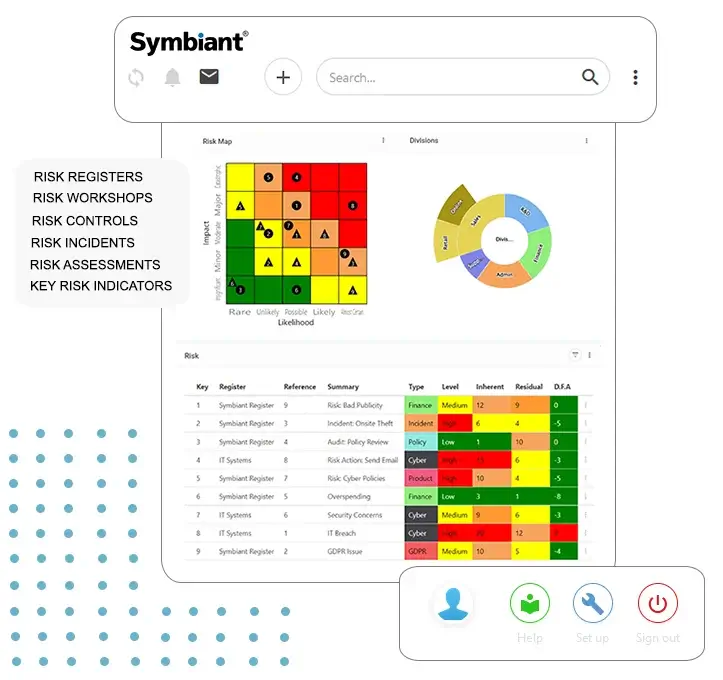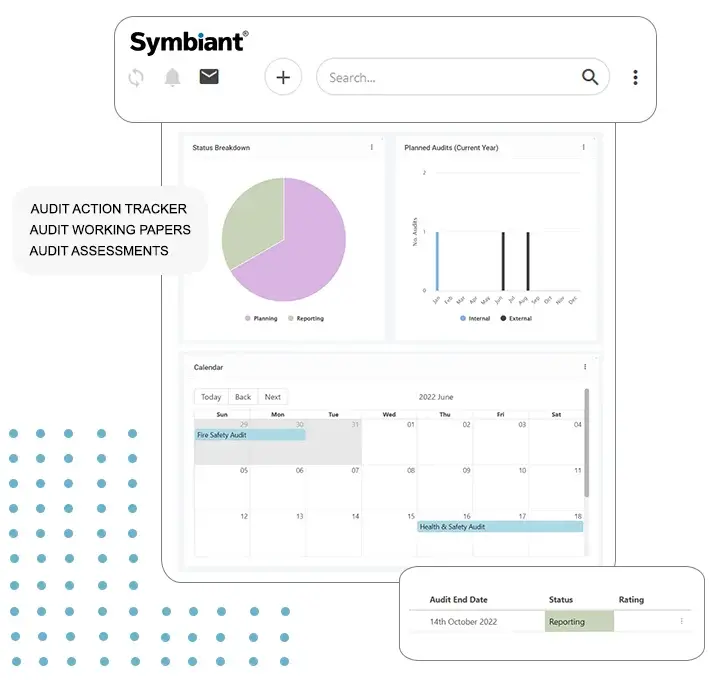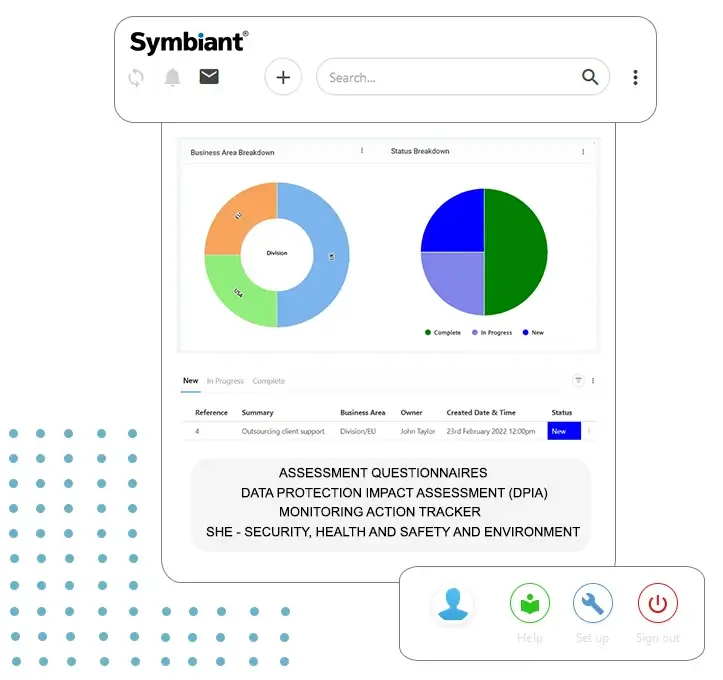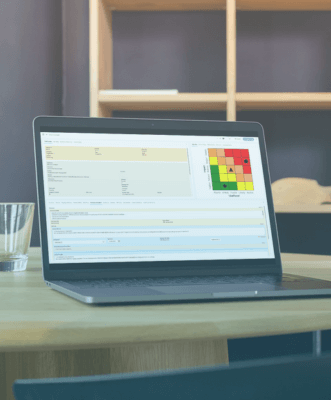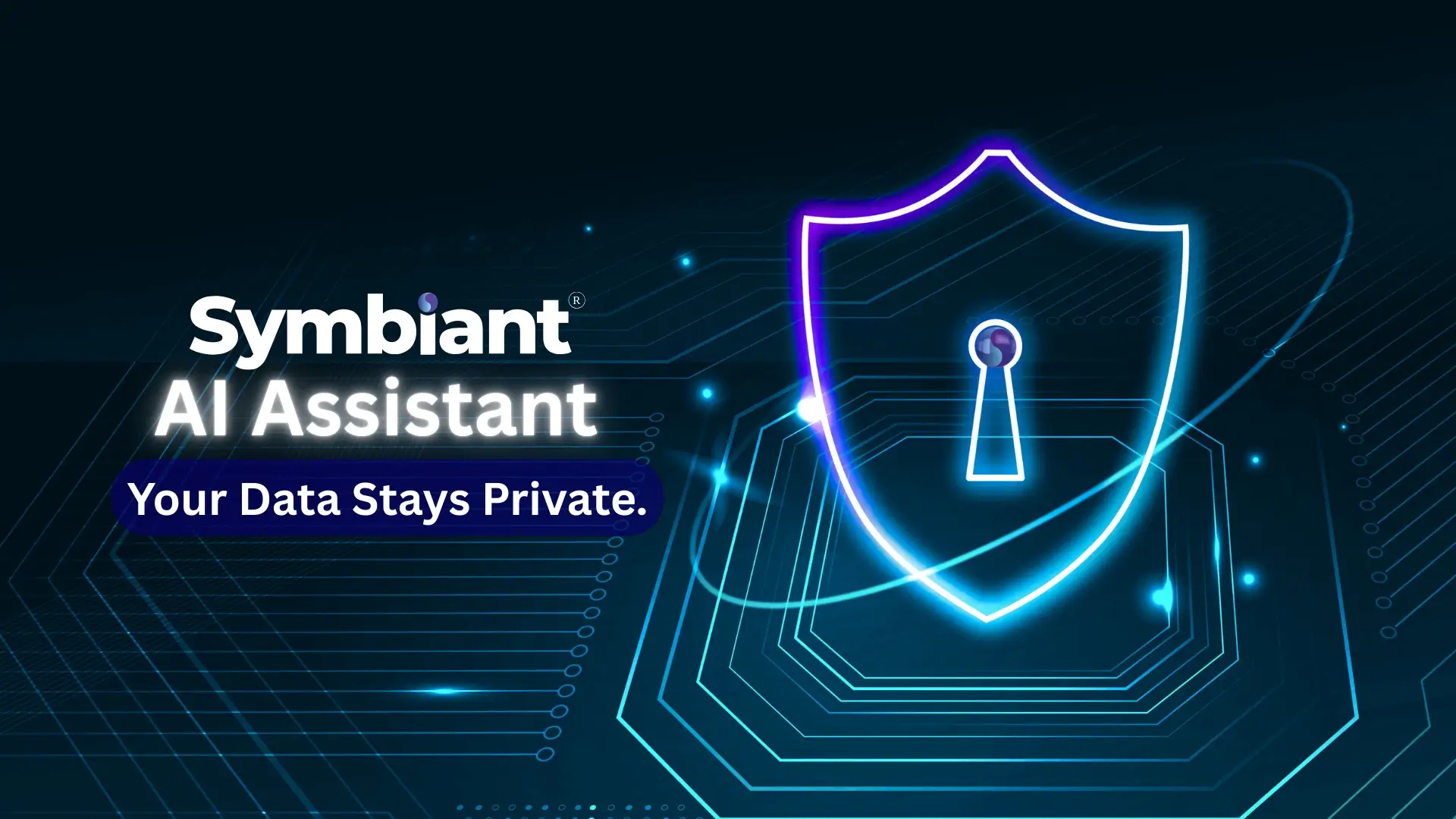Announced in the 2023 King’s Speech, the Cyber Security and Resilience Bill seeks to enhance the UK’s ability to prevent and respond to cyber threats across critical sectors.
The legislation aims to:
- Expand the scope of regulation to include managed service providers and others supporting essential services
- Mandate real-time cyber incident reporting
- Empower regulators with enhanced enforcement and oversight capabilities
- Promote proactive cyber resilience as a standard, not a goal
For audit, compliance, and risk teams, the Bill signals a clear change, organisations must be prepared to demonstrate the effectiveness of their controls and systemic resilience at any moment.
Why GRC and Audit Functions Are Central to Compliance
Governance, Risk, Compliance (GRC) and Audit professionals are often the first line of defence when it comes to structuring risk management, formalising policies, and preparing for external audits. The new Bill reinforces the need for:
Centralised Risk Visibility
Siloed risk registers and disjointed processes will no longer suffice. You’ll need a unified view of cyber-related risks, controls, incidents, and action plans across your organisation.
Real-Time Evidence for Audit Trails
Auditors will need more than point-in-time snapshots. They’ll require live audit trails, demonstrating not just intent, but implementation, backed by accurate, timestamped evidence.
Governance That Proves Resilience
Boards and regulators alike want proof that governance structures are doing what they say on paper. Your GRC system must support audit-ready, on-demand reporting that shows how cyber risks are assessed, mitigated, and escalated.
Why Spreadsheets Won’t Cut It Anymore
For years, spreadsheets have been the go-to tool for managing risks, audits, and compliance tasks. But under the UK Cyber Security and Resilience Bill, that approach is no longer fit for purpose.
Spreadsheets can’t:
- Provide real-time updates across departments
- Ensure data integrity and access control
- Generate evidence-based audit trails
- Trigger alerts when incidents occur or thresholds are breached
In a regulatory landscape that demands visibility, traceability, and rapid response, static spreadsheets create blind spots and risk.
Modern GRC and Audit Management platforms like Symbiant solve this by offering:
- Interactive, role-based dashboards
- Linked data across modules
- Customisable workflows
- Full control history and audit logs
Resilience requires more than manual tracking. It demands systems that think, connect, and respond with you.
How Symbiant Supports Cyber Resilience for GRC and Audit
Symbiant’s GRC and Audit Management platform helps organisations embed resilience, readiness, and compliance into their day-to-day operations.
Modular GRC Software
Pick the modules that match your organisation’s structure, Risk Register, Incident Management, Audit Actions, Compliance Monitoring, and more. Mix and match to build your ideal GRC ecosystem.
Import Existing Risk and Audit Data
No need to start from scratch. Symbiant allows seamless import of legacy data, giving you a single source of truth for historical risks, control reviews, and audit recommendations.
Live Dashboards and Reporting
Symbiant gives you real-time insight into your organisation’s cyber risks, open actions, control gaps, and compliance status, supporting fast, transparent reporting when incidents occur.
Evidence-Based Audit Management
Easily demonstrate how risks are managed with linked data, including audit findings, incidents, and control validations, ensuring you’re always audit-ready.
The Path Forward: From Compliance to Confidence
The UK Cyber Security and Resilience Bill isn’t about ticking boxes. It’s about creating a culture of accountability, where cyber risk is not just tracked but actively managed, and where systems can speak for themselves.
Symbiant is built for exactly that.
 The UK Cyber Security and Resilience Bill is a pivotal change in UK legislation, affecting governance, risk, and compliance practices across sectors. Organisations that rely on spreadsheets or disconnected systems will struggle to meet the bill’s requirements for real-time cyber incident reporting, evidence-based audit trails, and demonstrable risk controls.
The UK Cyber Security and Resilience Bill is a pivotal change in UK legislation, affecting governance, risk, and compliance practices across sectors. Organisations that rely on spreadsheets or disconnected systems will struggle to meet the bill’s requirements for real-time cyber incident reporting, evidence-based audit trails, and demonstrable risk controls.

